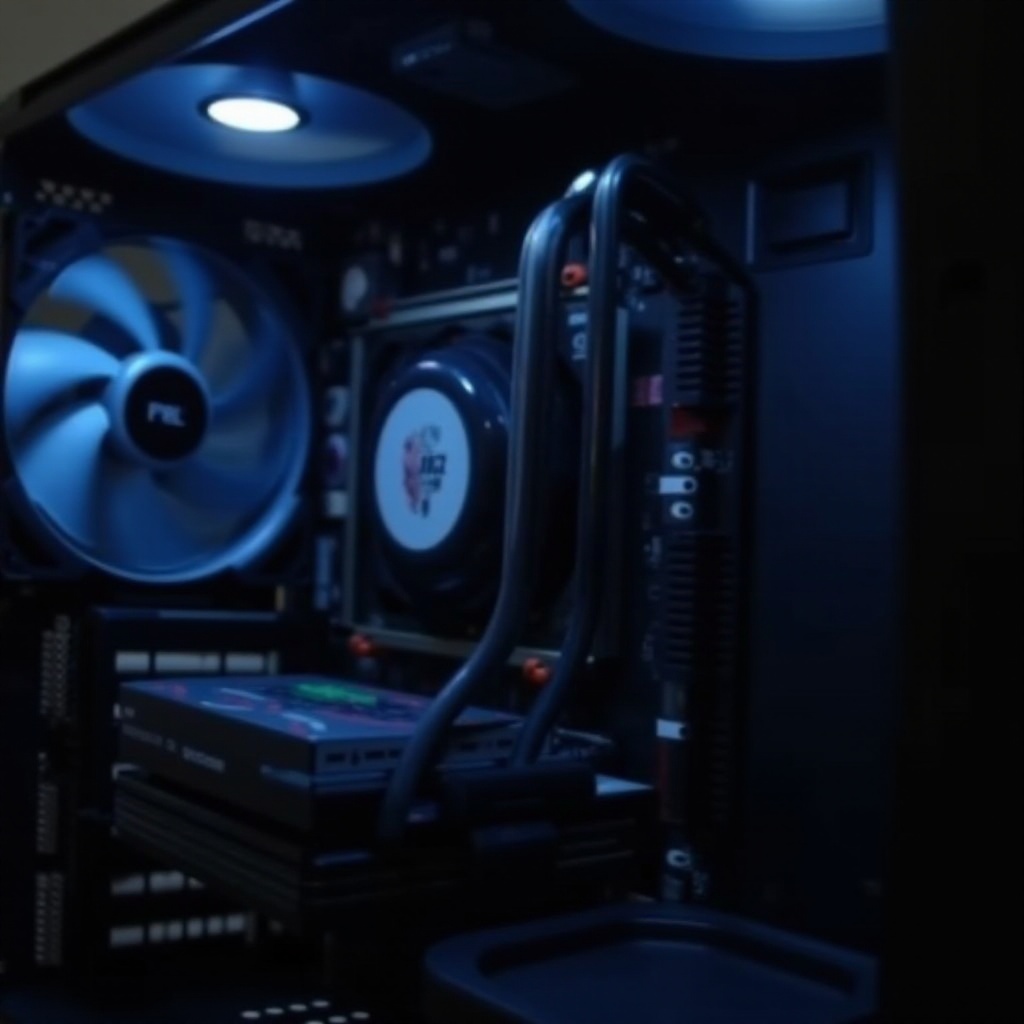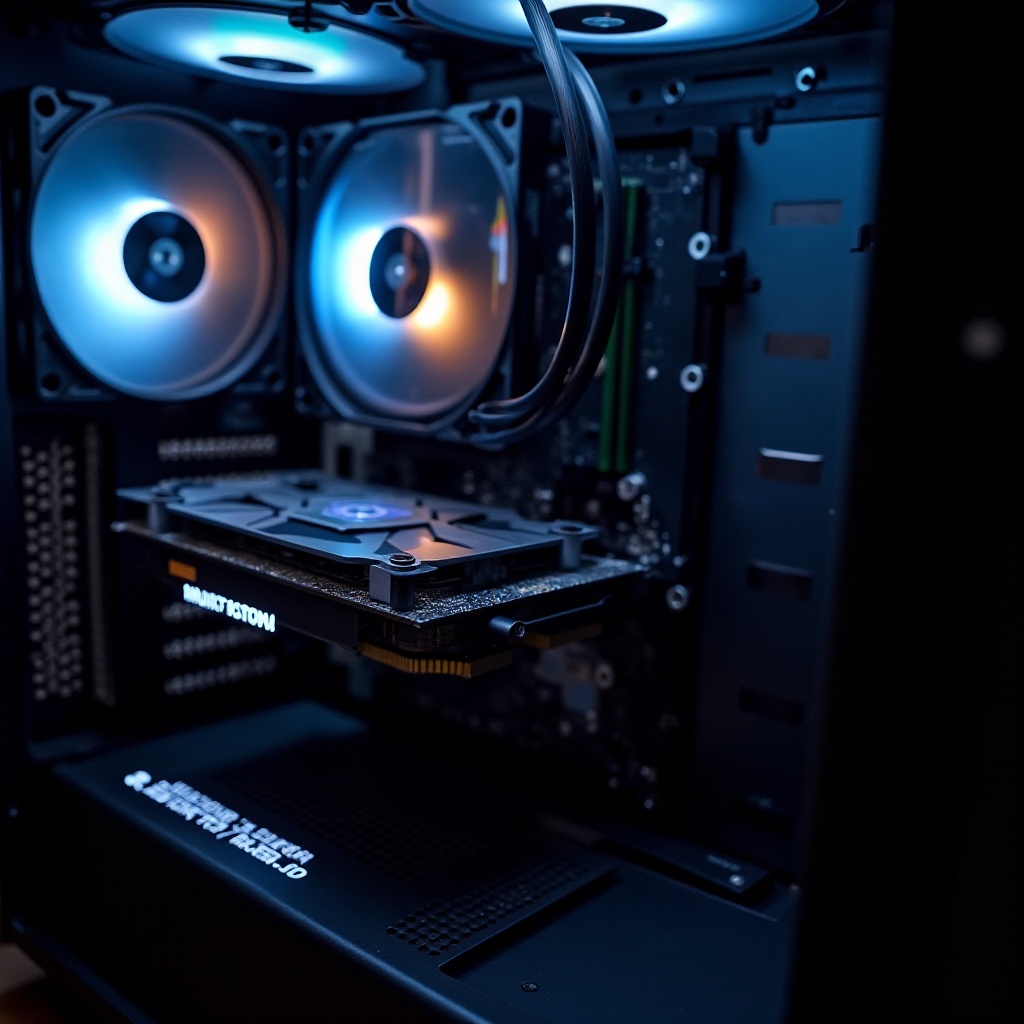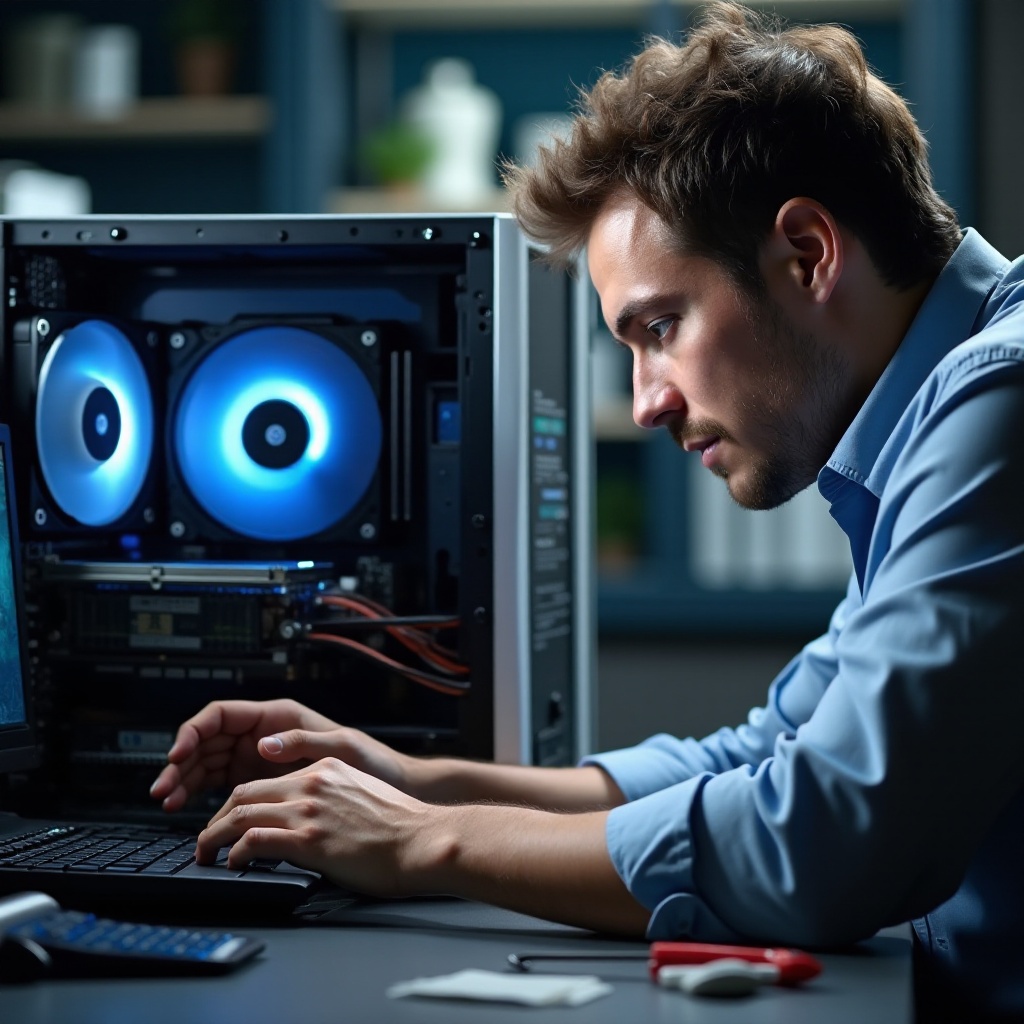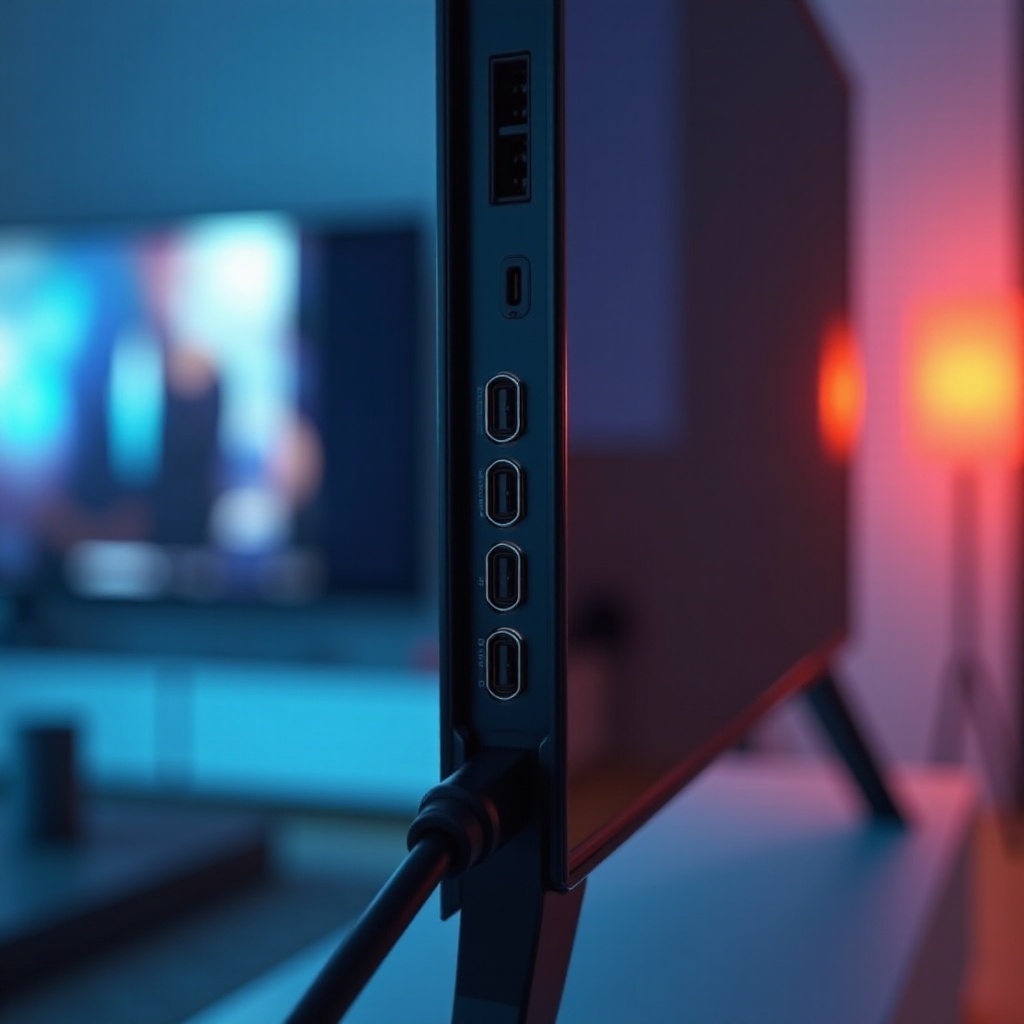Why Your Computer Fans Are Running Full Speed and How to Fix It
Introduction
Computer fans running full speed can be a sign of underlying issues needing immediate attention. Such scenarios often imply that your computer is either overheating or struggling with some components. A persistently noisy fan detracts from your working environment and can indicate potential harm to your machine's health. Understanding why this happens and how to address the root cause is crucial for maintaining your computer's performance and longevity.

Common Causes for Computer Fans Running at Full Speed
Several factors can cause your computer fans to run at full speed. By identifying these issues, you can address them more effectively.
Overheating Components
Overheating is the most common reason for fans running at full speed. When a computer's internal temperature exceeds safe levels, the fans work harder to dissipate the excess heat. This often occurs due to inadequate cooling or faulty hardware components such as the CPU, GPU, or power supply.
Heavy Computational Tasks
Engaging in heavy computational tasks such as gaming, video editing, or running intensive software can cause your computer to generate more heat, prompting the fans to speed up. These tasks demand more power from the CPU and GPU, leading to increased heat production.
Dust and Debris Buildup
Accumulated dust and debris inside the computer can obstruct airflow, causing fans to work harder to keep the system cool. Regular cleaning of the internal components can prevent this buildup and ensure optimal airflow.
Software and Driver Issues
Software glitches and outdated drivers can also cause fans to run at full speed. Malfunctioning software may put excessive load on your computer’s resources, leading the fans to operate at higher speeds. Keeping your software and drivers up-to-date can mitigate this issue.
Diagnosing the Issue
Once you understand the common causes, the next step is to diagnose your computer to identify the specific problem.
Checking System Temperature
Use hardware monitoring tools to check your computer's temperature. Programs like HWMonitor or Core Temp can provide real-time temperature readings for your CPU, GPU, and other components.
Evaluating System Load in Task Manager
Open the Task Manager to see which processes are using the most resources. Heavy usage by certain applications can cause your fans to speed up. Identifying these processes can help you manage or close unnecessary tasks.
Visual Inspection for Dust and Obstructions
Turn off your computer and open the case to inspect for dust and debris. Check if the fans and vents are clean and free from obstructions. If they are dusty, use compressed air to clean them carefully.

Solutions to Reduce Fan Speed
After diagnosing the issue, apply appropriate solutions to reduce your computer fan speeds.
Cleaning and Maintenance
- Regularly clean your computer's internal components.
- Use compressed air to remove dust from fans, heatsinks, and vents.
- Ensure all cables are neatly arranged to avoid obstructing airflow.
Optimizing Software and Updating Drivers
- Update all your drivers to the latest versions.
- Ensure your operating system is up to date.
- Close unnecessary applications running in the background.
- Use software such as SpeedFan to manually control fan speeds.
Using External and Third-Party Cooling Solutions
- Consider using an external cooling pad, particularly for laptops.
- Install additional fans or upgrade existing ones in your desktop.
- Apply high-quality thermal paste to the CPU and GPU to improve heat dissipation.
Preventative Measures for Optimal Fan Performance
To ensure your computer fans operate efficiently and prevent future problems, adopt these preventative measures.
Regular Maintenance and Cleaning
Make it a habit to clean the interior of your computer every few months. This includes removing dust from fans, vents, and other components to maintain effective airflow.
Proper Ventilation and Hardware Placement
Ensure your computer is placed in a well-ventilated area. Avoid blocking vents and keep the surroundings free from clutter that may obstruct airflow.
Investing in Quality Cooling Systems
Invest in high-quality cooling components such as CPU coolers, case fans, and thermal paste. High-performance cooling systems can effectively manage heat and keep fan speeds under control.
When to Seek Professional Help
If the problem persists despite your best efforts, it may be time to seek professional help. Certified technicians have the expertise and tools to diagnose and fix hardware issues that may not be apparent to the average user. Such services can prevent further damage and prolong the life of your computer.

Conclusion
Keeping your computer fans from running at full speed involves understanding the causes and applying the right solutions. Regular cleaning, software optimization, and proper maintenance are key to ensuring your computer runs smoothly and quietly. Taking these steps not only prolongs the life of your machine but also enhances your computing experience.
Frequently Asked Questions
What should I do if my computer fans are running at high speed right after booting up?
If your computer fans start running at high speed immediately after booting up, it may indicate a BIOS issue, recent software updates, or hardware problems. Checking the BIOS settings and updating your software can often resolve this.
Can software updates really help with fan speed issues?
Yes, software updates can fix bugs and improve system efficiency. Outdated drivers or software can cause unnecessary strain on the CPU and GPU, leading to increased fan activity.
How often should I clean the inside of my computer to maintain optimal fan performance?
It’s recommended to clean the inside of your computer every three to six months. Regular cleaning prevents dust buildup, which can obstruct airflow and cause fans to run loudly.




